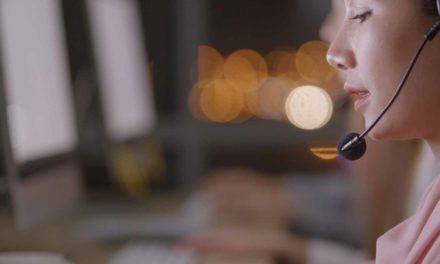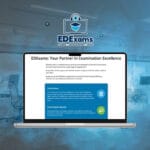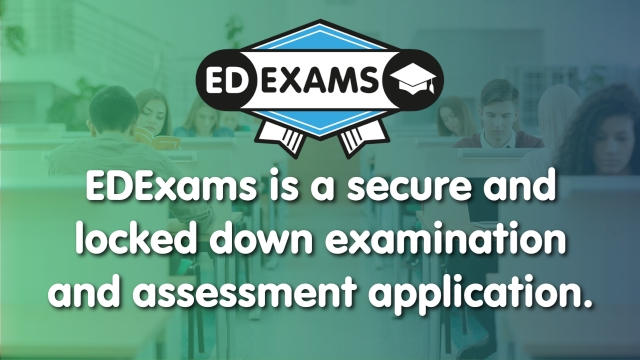During the pandemic, people were forced to halt their normal day-to-day activities. In these adverse times, people came to rely on technology for the completion of their everyday activities. One of these activities was attempting the examinations and assessments online. Various advanced tools were developed to deliver academic lectures and in-camera remotely proctored assessments.
What is Online proctoring?
Online proctoring, also called online invigilation, enables one to reproduce the in-person examination experience online. It simply refers to the idea of maintaining a close watch on the students during the test, just like a real person would during a paper-and-pencil exam, offering assistance when needed and discouraging any efforts at cheating. Online invigilation is responsible for conducting the proctoring during all the exams, such as multiple choice-based questions and assessments with descriptive questions.
There are several ways to invigilate online exams. These different ways are as follows:
- Live online exam invigilation- From a distance, an invigilator monitors the student’s audio, video feed, and screen activity in real-time. Except for the availability of the remote location, live online exam invigilation is relatively similar to offline invigilation.
- Recorded exam invigilation- An exam’s audio, video, and screen usage feed are all recorded, and the invigilator listens to them afterwards.
- AI-based exam invigilation- This kind of invigilation eliminates the need for human invigilation through facial recognition, eye tracking, and object tracking capabilities through the camera.
The AI can track and identify any suspicious behaviour of the candidates in real time, informing the invigilator of its findings.
What are the benefits of using an online invigilator?
Several factors are required when it comes to facilitating the remotely proctored exams. In these exams, a proctor, or an online invigilator, is appointed to monitor the students attempting the online assessments. These factors are listed below:
- A fully functional webcam- A webcam is required for the online invigilator to assess the actions of the candidates attempting the online exams.
- A PC or a laptop- Candidates need technology, such as a computer or tablet, that meets the minimum system requirements to handle both the invigilation software and the online exam. Secondary devices such as mobile phones with a working camera can also be used as an alternative to the computer.
- Internet connection- Decent internet connection is required for facilitating the online exams. A connection with at least 256 kbps network speed is required to establish a stable connection.
- A working microphone and speaker- These are both required so that the online invigilator can assess the audio recording of the exam along with the video.
There are several benefits of using the services of an online invigilator or supervisor to conduct a fair online assessment. Three of the most significant of these benefits are listed below:
- Ensures and preserves the integrity of examinations- Through the use of a proctor in remote exams, the academic integrity of remote examinations is maintained. Through online invigilation, an eye is kept on the suspicious behaviour of the students. Using artificial technology, features such as head position detection, eye gaze detection, and liveness detection are assessed to detect the abnormal behaviours of the candidate. Hence, it establishes a cheating-free or fair environment.
- Online invigilation is favourable to everyone- This exam mode is appropriate for both the examinee and the examiner appearing for the exam. The assessments can be conducted from a remote location. It can also be proctored remotely, and the proctor can invigilate from anywhere. Physical centres are not required in this scenario, reducing the overhead costs of conducting an exam. So, online and remotely proctored exams are beneficial overall.
- Thorough invigilation- The software that enables remote proctoring allows thorough invigilation. The proctor has access to a 360-degree view of the space where the candidate is conducting the examination. They can recognise any malpractice within an examination. Turning off the functionality of browsers and new tabs, websites, search engines, screen sharing, external ports, printing, data sharing, and the ability to cut, copy, and paste is also very beneficial.
There are other features of online proctoring, such as object detection. Object detection prevents students from using mobile phones or textbooks to cheat. Online exams that are based on remote proctoring are necessary right now. Developing various remote proctoring tools using cutting-edge technology makes it simpler to administer, oversee, and assess online exams and the responses provided.
If you would like to find an online examination service that can offer live invigilation through a locked-down application then visit EDExams. The platform can be used by colleges, universities, employers, governing bodies, and certification providers to help offer a secure, high-quality assessment experience. To book a free online demonstration, call the team on 01909 384090, send an email to mail@edexams.com or book directly here.











